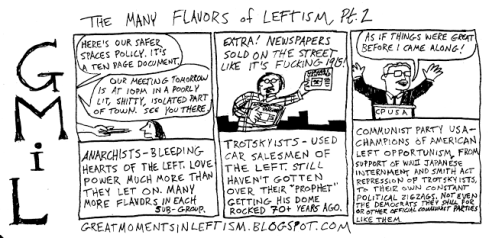Recommended Links #2
- The End Of China’s One-Child Policy? An Interview with Mei Fong (dissentmagazine.org)
>>To dismantle this huge and profitable system takes a lot of political will, and it’s hard to drive that bus when all the economic difficulties of the one-child policy—pension shortfalls, diminished workforce, quenched entrepreneurial vigor—are pending, but not immediate.
Another reason is the one-child policy’s worst effects and abuses have been on China’s poorest and most disenfranchised people. Educated urbanites have been shielded from a lot of the policy’s excesses, such as forced abortions and having their homes physically destroyed. City dwellers are also least interested in having large families—their jobs and income don’t depend on it, and housing in modern China is increasingly expensive. So the one-child policy simply hasn’t had that much of a backlash against it, certainly not among the middle classes and elites, whose views are the most influential. The 2008 Pew Research survey found roughly three in four Chinese approve of the policy—but bear in mind, the survey methodology acknowledged the sampling was disproportionately representative of China’s urban areas.<<
- Patents Against People: How Drug Companies Price Patients out of Survival (dissentmagazine.org)
>>The struggle for access to medicine presents a legal and ethical minefield for rich and poor countries alike—one that is being fought out as humanitarians challenge corporations over intellectual property rights. A recent landmark decision by the Indian Supreme Court thrust that conflict into popular awareness. The ruling blocked a request by the global pharmaceutical giant Novartis for a patent on a Leukemia drug, Gleevec. The company claimed to be introducing a new formulation of the drug that warranted a fresh patent. But the court determined that the new Gleevec was virtually identical to the old one. This cleared the way for mass production of a much cheaper generic version. While a cancer patient in the United States might spend around $70,000 for Gleevec, India’s version could cost as little as $2,500.
The defeat of Novartis sent shockwaves across the drug industry. Companies have long structured their profit systems around an obscure set of intellectual property controls, and the ruling represented a growing global pushback against their political and commercial hegemony. The case raised a preeminent question in the struggle for global health equity: when the laws of commerce override the human right to medicine, can society protect public health from unbridled private markets?<<
- “Roza is a leader: That’s why they jailed her” (libcom.org)
Interview with a trade union activist in Kazakhstan, about the case of Roza Tuletaeva and other oil worker activists jailed after the 2011 strike and massacre at Zhanaozen.
- ‘Europe in Ukraine’: Many things to lots of people (libcom.org)
An op-ed looking critically at the current protests while acknowledging the legitimate concerns and sincere motives of the majority of protestors.
- 1980: The Kwangju uprising (libcom.org)
The events of May 1980 in the South Korean city of Gwangju, which were a turning point in South Korea’s struggle for democracy, are still widely unknown in the West.
- Israel’s Histadrut wins big victories as unions elsewhere struggle to grow (ericlee.info/blog)
- Beyond the legal strategy: Taking the fight against BDS into the unions – and how to win (ericlee.info/blog)
>>Just imagine if these events had happened in Venezuela, Belarus or Ukraine, or in any other country where the West’s political and financial elites desire ‘regime change’. We’d have had widespread media coverage and comment pieces from ‘liberal interventionists’ and neocon columnists, pledging their solidarity with the students, denouncing police actions and calling for sanctions to be imposed on the country, (or strengthened if they had already been applied). But when student protests are aggressively suppressed in Britain, when basic democratic rights are infringed before our very eyes, it’s a different story altogether.<<
>>In contrast with South Africa, which – consistent with Mandela’s vision – largely embraces its mix of whites, blacks, coloured, Asian and Indian populations (as well as Jews, Christians, Muslims and African ethnic groups such as Xhosa and Zulu), the new state of Palestine will almost certainly be entirely Arab Muslim. There will of course be no Jews and (if trends throughout ‘Palestine’ and the Arab Middle East continue) almost no Christians.
All of this leads us to conclude that while Palestine will likely not become an apartheid state – as such state codified racism first requires the critical mass of racial diversity which they will not possess – it will become the kind of racial exclusivist state which Mandela and South Africa’s liberals found so abhorrent.<<
- Bitcoin Proves The Libertarian Idea Of Paradise Would Be Hell On Earth (businessinsider.com)
- My Palestinian ‘history’ lesson (Part 1) (timesofisrael.com)
>>I’ve done some real soul-searching recently. By that, I mean trying to balance my understanding of the Arab-Israeli Conflict. My understanding of the Israeli narrative is deep and personal, so recently I endeavoured to understand the Palestinian narrative on the matter. In order to do this, I went to the Hamas-run “Palestinian Info Center” in the hope that I’d get some background on their perspective so I might understand their claim better. I went straight to the page “the History of Palestine”. The introduction was not meant for ‘any’ target audience- only Muslims. It was not only historically dubious, but most disturbingly it was rich in anti-Semitic allegations.<<


